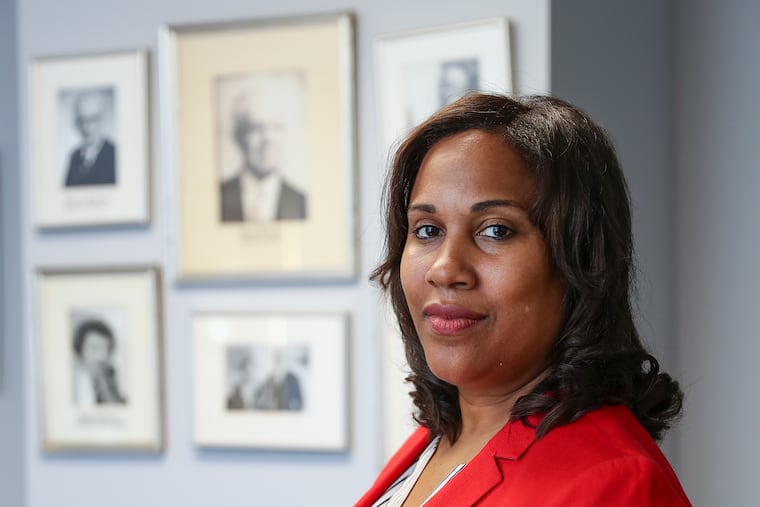Philly’s public defenders say they will not work on jury trials until lawyers are eligible for COVID-19 vaccines
Chief Defender Keir Bradford-Grey wrote that her staff was also “evaluating the potential for curtailing additional areas of our practice” if the vaccine requirements are not changed.

Lawyers for the Defender Association of Philadelphia, which represents the vast majority of defendants in the city’s criminal justice system, will not work on jury trials until they are made eligible for COVID-19 vaccines, according to a letter sent to several judges and city officials.
In the letter, a copy of which was obtained by The Inquirer, Chief Defender Keir Bradford-Grey wrote that her staff also was “evaluating the potential for curtailing additional areas of our practice” if the vaccine requirements are not changed. Many people in her office, who are generally ineligible for shots, are continuing to visit clients in the city’s jails and litigate cases in cramped or poorly ventilated courtrooms.
“This is not a stance we take gladly or lightly,” Bradford-Grey wrote, adding that she believed the change was necessary to ensure “the safety of our clients and staff.”
The letter comes amid a generally bumpy and unequal vaccine distribution across the region. Southeastern Pennsylvania officials on Monday blasted the state Health Department for not sending enough shots to the region, and the city says it is continuing to focus on addressing racial disparities in inoculations.
It also followed a turbulent week at the city’s courthouse, where two trials were delayed due to possible COVID-19 exposures, and lawyers in a third trial were forced to quarantine because a defendant was brought into a courtroom after a possible exposure while in custody.
Bradford-Grey said in her letter that the defendant had been “COVID-positive.” But city spokesperson Deana Gamble said Tuesday an employee of the prisons had mistakenly reported that the defendant had tested positive even though he had not.
Gamble said city officials had received Bradford-Grey’s letter and would respond to her directly. The city is “working to better understand which employees from the various criminal justice agencies are at the greatest risk of exposure,” she said, without providing details on who those people were or whether they might be more quickly vaccinated.
According to city guidelines, legal workers in Philadelphia are generally not eligible for shots until after the city has inoculated other groups of people, such as health-care workers, residents of long-term care facilities, essential workers, and those with other health concerns. The Public Health Department has not said when it might expand the eligibility criteria.
Bradford-Grey said in her letter that the lack of shots for her staff was “even more outrageous in light of the fact that judges, who do not spend time in the prisons, are being vaccinated.”
Gabriel Roberts, a court spokesperson, said that the court system “was made aware that probation officers and judges qualify for the vaccine in late January,” and that the courts have been working with Thomas Jefferson University Hospital to give shots to judges, probation officers, and other eligible staff.
A spokesperson for Jefferson, however, said it vaccinated court system employees who fit the city’s current eligibility requirements, known as group 1b, which does not include judges. And Gamble said that the judges were generally not yet eligible for a shot unless they qualified due to their age or any underlying medical conditions, and that “the City did not arrange for, nor was aware of, the vaccination of judges as a group.”
It was not immediately clear what impact the defenders’ stance might have on courthouse operations. A defenders’ office spokesperson did not say if any current trials were impacted.
In any case, jury trials are a small fraction of what the office’s lawyers do. The overwhelming majority of criminal cases are resolved before reaching trial or by plea, and the defenders’ office also has groups of attorneys dedicated specifically to areas including appeals, pretrial issues, cases involving children, and other services.